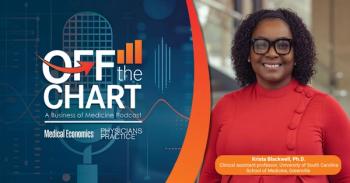
Primary Care Vs. the Emergency Department: One Practice's Perspective
Primary-care practices are unfairly blamed for not providing enough care and advice to patients.
According to a 2010 research brief released by the New England Healthcare Institute, the overuse of emergency departments (ED) "
First, we are too small to compete with large hospitals that invest a significant amount of marketing dollars in order to attract patients to their EDs. There are billboards that showcase how short the wait in a particular ED is and hospital websites that market how patient-friendly they are. One hospital near us even features a call-ahead service similar to a restaurant; one phone call to get on the wait list and you are given an approximate time your table, I mean, ED doctor will be available.
In researching this blog, I spoke with a few ED docs and asked them why they think their hospitals market the ED so aggressively when the result is often a high number of patients who don't need ED services and, worse, can't necessarily pay. I was surprised to learn that a few of the docs thought the marketing stemmed from a need to achieve high patient-satisfaction scores on surveys to satisfy pay-for-performance contracts. Research shows that patients give bad satisfaction scores if they have to wait too long between arriving at the ED and being admitted. Patients also give bad reviews if the ED doc doesn't prescribe the narcotic the patient is after.
For our pediatric practice, we are especially concerned with antibiotic misuse; no wonder we have a problem with drug-resistance bugs! The doctors are afraid to say no to a demanding, but wrong, ED patient who wants an antibiotic. We need a system that allows a licensed medical provider to tell a patient, "No, you can’t have an antibiotic for your viral infection" and not have to worry that now they will get a bad satisfaction score. For an in-depth look at why patient satisfaction surveys in healthcare are a bad idea, I highly
The second reason I feel primary care is set up to fail in keeping patients out of the ED is, and this has been true in Massachusetts for seven years and will soon be true in most of the U.S., ED use is up because there is an increase in insured individuals.
The theory that ED use will go down when more people have health insurance was disproven in the Massachusetts experiment. When people were uninsured, they hesitated to show up in ED without insurance and would only do so when they really thought it could not be avoided. Now that 97 percent of Massachusetts is insured, there is nothing slowing them down from showing up in the ED: No cough is too slight, no fever too low, and no rash too insignificant. And since many of these newly insured individuals don't have, and can't find, a PCP (or even know how to be a typical primary-care patient) they head to the only resource they know: the ED.
This leads me to my last point of how the system encourages overuse of EDs: Mass-media coverage of celebrities who die suddenly (like Tim Russert) without any alarming symptoms. The truth is most people have no idea what constitutes a medical emergency. A recent Washington Post article cited a number of studies that showed patients in the ED really think they have symptoms that cannot wait (even though they can) until the primary care practice opens in the morning. And who can blame them when the TV news hypes up rare, but real, deadly disease.
Of course, this last point, patient education, is where we small primary-care providers can, and do, try to make a difference in not only reducing ED overuse, but over-utilization of the healthcare industry as a whole. To that end we have instituted a number of solutions to stem over ED use including:
• We make our providers available, by phone, until 10 p.m. on weekdays and until 6 p.m. on weekends
• We pay for an overnight nursing service to speak with patients when a provider is not available
• We have a dedicated "symptoms" page on our website that explains patient options for care including insurance nurse lines and retail clinics
• We call and send letters to patients we feel utilized the ED inappropriately to educate them on their choices in the future
The one thing we're not willing to do is be open more nights and weekends. For us to do that, we'd have to lose our independence and join a much larger group. For us and for our patients, the benefits of convenient care are not enough to give up all the benefits we've achieved as a small medical home.
The societal costs of individual decisions in healthcare are abundant; ED over-utilization is just one. For those of us in primary care, we can play our part by educating patients as to their best options for care, but it's not enough. We need our political leaders to step in to make policy changes. When it comes to healthcare, the preferred individual choice is almost never the best choice for the system as a whole.
Newsletter
Optimize your practice with the Physicians Practice newsletter, offering management pearls, leadership tips, and business strategies tailored for practice administrators and physicians of any specialty.








